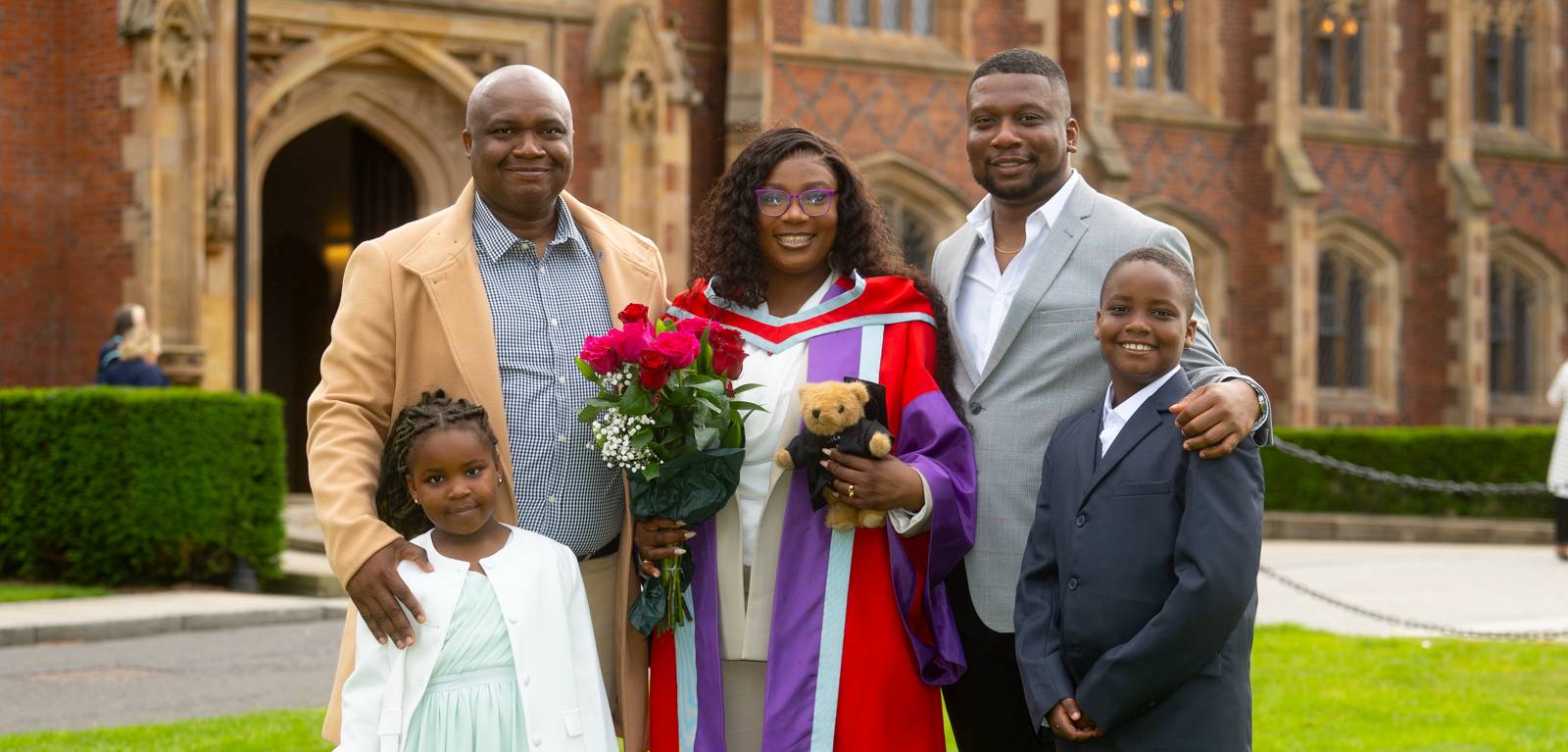Queen’s PhD scholar turns personal experience into research to support mothers in the workplace
Blessing Chukwuka, from Nigeria, is graduating with a PhD in Business and Management from Queen’s Business School today. Blessing’s PhD focuses on how workplaces can better support working mothers.

Blessing moved to Belfast from Nigeria on a diversity and inclusion scholarship from Queen’s Business School, leaving behind her two young children, just four years and 18 months old at the time, to pursue her PhD.
Blessing’s research, which focuses on the maternal body and the work experiences of working mothers, is rooted in her own life. Having faced discrimination and unfavourable experiences simply for being pregnant or breastfeeding while working, she turned her experiences into powerful, original research.
Speaking about her PhD research, Blessing said:
“My work is important because it brings the real, lived experiences of working mothers into the spotlight. For too long, the way women’s bodies are seen at work have been either invisible or told through abstract frameworks that do not reflect the emotional, physical, and logistical complexities women navigate every day.
“To have someone genuinely researching this means acknowledging those challenges and validating them. More than that, it opens up pathways for practical solutions and has the potential to influence policy, which is something I hope can lead to meaningful change in how workplaces support mothers.”
Although Blessing found leaving her children in Nigeria incredibly difficult, she poured herself into her research. Having earned a first-class undergraduate degree and a master’s with distinction, she knew her PhD had an important purpose, and she promised herself she would give it everything she had.
Blessing said:
“The early months were very hard. I spent many nights in tears, missing my children, battling loneliness, and questioning if I had made the right choice. But that pain became my motivation.
“There were moments during my research when I felt overwhelmed, but I kept going because I knew I was not just doing the PhD for academic recognition, I was doing it for myself, my children and all the women whose stories have gone unheard. Every struggle I faced as a mother in academia became fuel for this work. It reminded me why it matters and who it’s for.”
When looking to the future, Blessing hopes that her children will grow up in a world that’s more compassionate, inclusive, and fair.
She said:
“I want them to feel free to pursue their passions without being limited by outdated structures or expectations that constrain them. I hope they live in a society where the work of caregiving is valued, not just in words but in real, systemic ways.
“Ultimately, I want them to know they can thrive both personally and professionally without having to compromise who they are. My hope is for them to have blissful and successful career in whatever path they choose.”
Post-graduation Blessing plans to remain in academia, and engage in research at a research-intensive university within the UK. She is particularly passionate about pursuing research that challenges dominant narratives and contributes to social change.
Speaking about the diversity and inclusion scholarship she was awarded by Queen’s, Blessing said:
“I am more than grateful to Queen's for being instrumental in my career. Getting a scholarship from Queen’s and being a first-generational doctoral graduate, positions me as a trailblazer, breaking new ground for my family and hopefully paving the way for others.”
Media
Media enquiries to comms.office@qub.ac.uk.